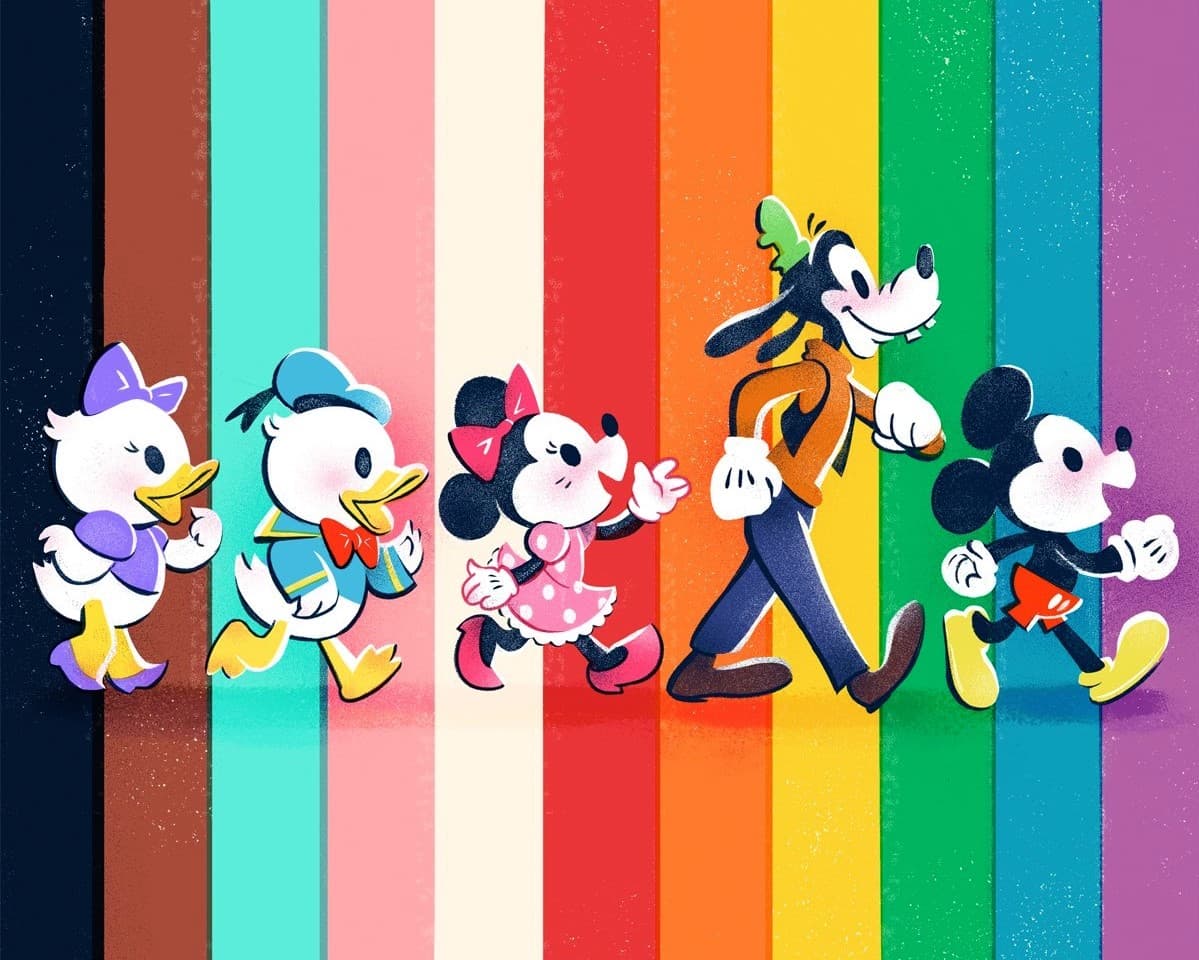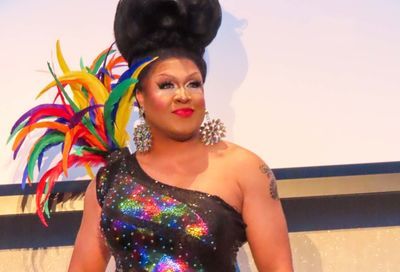Captain America: Civil War (review)
"Captain America: Civil War" is an ensemble film that asks big questions and packs an even bigger punch

Captain America: Civil War is perhaps the best outing yet from any of Marvel’s franchises — and yes, that includes the breath of fresh air that was Joss Whedon’s first Avengers film. Though Steve Rogers threatens to be overwhelmed by all of the characters, plot details, politicking, soul-searching and fighting in his third outing, Civil War dares to scratch beneath the surface of its heroes and, as a result, triumphs.
First, a disclaimer: if you’re one of the few people who’ve yet to see any of the current Marvel films, there’s little here for you. Without knowledge of the characters, their personalities, established backstories, the Marvel Cinematic Universe as a whole, or even a passing glance at a Wiki page, Civil War is a fine action film stuffed with well-directed action scenes, snappy dialogue, and a bunch of stuff that will leave you constantly interrupting the person next to you to ask what’s going on. At the very least, Winter Soldier is a must-watch for jumping into Civil War — several characters and plot details carry through to this third Captain film. If you’re not willing to do the legwork, then screenwriters Christopher Markus and Stephen McFeely have little time for you.
If you’ve invested in Marvel’s efforts, however, Civil War (![]()
![]()
![]()
![]() ) is phenomenal. For sheer quantity of content, it more than justifies the price of your seat. It hinges on the premise that, after at least ten films featuring some semblance of destruction to civilian property — and presumably significant loss of life — the Avengers need to be kept in check. Markus and McFeely are tapping into a hotbed of foreign policy questions here: Can one entity be in charge of policing the world? Can we hold to account those who accidentally cause death in the pursuit of stopping a much larger threat? When it comes to questions of morality, who holds ultimate authority? Answering those questions, unsurprisingly, proves to be problematic.
) is phenomenal. For sheer quantity of content, it more than justifies the price of your seat. It hinges on the premise that, after at least ten films featuring some semblance of destruction to civilian property — and presumably significant loss of life — the Avengers need to be kept in check. Markus and McFeely are tapping into a hotbed of foreign policy questions here: Can one entity be in charge of policing the world? Can we hold to account those who accidentally cause death in the pursuit of stopping a much larger threat? When it comes to questions of morality, who holds ultimate authority? Answering those questions, unsurprisingly, proves to be problematic.
A need to oversee the Avengers arises after a mission in Nigeria leads to the deaths of a number of innocents. The United Nations propose a council that will monitor the Avengers, instruct them in missions, and approve or deny any actions that need to be taken. It’s here that Civil War gets its name, as our heroes start to fall into two very distinct camps. Rogers is resolutely against any oversight, believing the council to be subject to the whims of whomever controls it, while Tony Stark is in favor, after an encounter with a mother whose son was killed in Lagos shakes what little conscience he has left. They become de facto leaders for either side, with Cap and co. forced to go on the run as Stark works with the government to reel them in.
The film’s other story arc involves the hunt for Bucky Barnes/Winter Soldier (Sebastian Stan), accused of terrorism and chased by security forces. Stark and Rogers initially fight about Avengers oversight, but that schism fully opens when Rogers protects Barnes from being caught, believing his old friend has been framed. All the while, Helmut Zemo (Daniel Bruhl) is chasing down Soviet activation codes which were used to brainwash and control Barnes, forcing him to carry out murders to obtain information and items. His ultimate goal, however, is to coax Iron Man and Captain America into a full-blown war.
Really, it was inevitable that Stark and Rogers were going to butt heads. Their personalities are so well-established that the constant do-goodery of Rogers was only ever going to clash with Stark’s more grey, ambiguous nature. It’s just a shame that, during initial discussions over any Avengers oversight, Markus and McFeely fail to give either character room to properly state their case. Indeed, it’s tough not to side with Stark — his reasoning for the oversight is vastly superior to Rogers’ doe-eyed pleading and assertions that he must follow his gut, regardless of the consequences. When Stark retorts that he wants to punch Rogers in his perfect teeth, more than a few audience members will wish that he would.
Thankfully, it doesn’t take long for things to devolve into fisticuffs, and that’s when Civil War truly starts to sing. Anthony and Joe Russo have proven capable of balancing the gentler interpersonal moments of these films with grand, overblown action, but it’s in the latter that both their direction and the script find greatest comfort. At the film’s core is one momentous battle sequence, as the two warring sides come to blows at a German airport. For fans of the franchise, it’s an awesome moment — heck, for everyone else it’s still pretty darn awesome. Far more interesting than the ludicrous “Batman versus Superman” question (Superman, c’mon folks), Iron Man versus Captain America offers a real fight, one where the outcome is less than certain.
As no fewer than 12 heroes lock horns, it’s a glorious spectacle. The Russo brothers keep tight control of the action, so it never becomes overwhelming, even as planes explode, terminals shatter in showers of glass, Spider-Man slings his way over baggage carts, Ant-Man works his way into Iron Man’s suit, or Captain America and Bucky try to make their escape. It’s a thrilling scene, made even better by the rich vein of humor that courses throughout — these heroes are, despite their ideological differences, still friends. When Hawkeye and Black Widow go hand-to-hand, the former asks “We’re still friends, right?” That such a momentous battle isn’t the dark, depressing spectacle of that other superhero film makes it all the more enjoyable. Marvel’s patented brand of humor remains on point, offering genuine laughs even when a dozen of the heroes we know and love are knocking lumps out of one another.
Indeed, the sheer number of characters thrown at viewers during Civil War‘s 147-minute runtime is impressive without ever feeling excessive.
As Steve Rogers/Captain America, Chris Evans once again turns in a reliably altruistic performance. Though he’s occasionally been asked little more than to turn up, make some jokes about being out of sync with modern culture, and then punch things and throw his shield, here the character is finally given genuine quandaries to consider. As those around him bend to the will of the world’s governments, he steps up and becomes the leader of his group of rebels. It’s commanding, and Evans handles the emotion asked of him well, but in his own film, Captain America seems to do little more than keep the plot chugging along. Instead, it’s the supporting cast who really shine.
Scarlett Johansson continues to offer justification for a Black Widow film that will never be, as she switches allegiances, toys with other characters, kicks ass, wisecracks, and then displays raw emotion without missing a beat. Anthony Mackie returns as Sam Wilson/Falcon, though as Rogers’ sidekick, Wilson is forced to follow him due to little more than blind loyalty. Mackie handles the humor asked of him well, but there’s little extra meat in the script to work with. As T’Challa/Black Panther, Chadwick Boseman offers an intriguing glimpse of the character he’ll be portraying in a standalone film in 2018. It’s little more than that, however — intent on avenging the death of his father at the assumed hands of the Winter Soldier, there’s no depth to the hatred burning beneath the surface of his Catwoman-esque costume. Presumably it’ll be fleshed out in 2018.
As Wanda Maximoff/Scarlet Witch, Elizabeth Olsen offers a surprisingly nuanced performance. More than anyone, she wrestles with guilt, being the main reason for the civilian deaths at the film’s start. Maximoff is forced to contemplate the destructive potential of the power she wields, while faced with the reality that she has brought about the initial reason for the Iron Man/Captain America conflict. Olsen’s big, expressive eyes carry this subplot, as Maximoff battles the need to control herself with the desire to explore the depths of her power.
One of Civil War‘s biggest surprises is the introduction of a new Spider-Man. Yes, it’s our third iteration of the character in ten years, but don’t start writing angry Reddit posts just yet. Newcomer Tom Holland may be here mainly to offer comic relief and to establish a thin veil of lore for his own franchise next year, but in just a few minutes of screentime he manages to outshine most of those around him. Jumping web first into the role, Holland crackles with energy, offering just enough to justify sitting through yet another of the web-slinger’s films.
Surprisingly, though, Civil War belongs to Robert Downey, Jr. As Tony Stark/Iron Man, audiences have become accustomed to his fight first, consider the consequences later approach to problem solving, but in Civil War, Stark’s internal struggle is better defined and more interesting than Rogers’. He abandoned weapons manufacturing due to the destruction it could wreak, yet now must face the fact that the Avengers are capable of far greater destruction — even in the quest for peace. It’s tough not to root for Stark throughout, not least because Downey’s performance is as charismatic as ever, but also because his turmoil is explored to a greater degree. He may not always be right, but because he’s more flawed than Rogers, he’s more likable as a result. In the climactic final battle sequence, in which Iron Man squares off directly against Captain America, it’s Stark who has the audience’s backing.
When the dust eventually settles, however, we’re in no clearer a place than two hours earlier. Civil War doesn’t really conclude anything. It’s almost two-and-a-half hours of various Avengers examining their place in the world, their personal predilections, their affiliations. As the credits roll, audiences are left in the rubble of the film’s central war — any concrete resolutions are left for future films in the MCU franchise. What it does, however, is delve deeper than any Marvel film in recent memory. Though the script doesn’t always answer the questions it’s asking, that it even poses them is noteworthy. This is a superhero film where guilt, responsibility, morality and loss all have gravitas. The unseen deaths that so many of Marvel’s films are filled with — those in New York, Sokovia, and other places — are finally given weight. That Civil War never sags under that weight is a marvel in and of itself.
Captain America: Civil War opens in theaters nationwide on Friday, May 6. For tickets, visit fandango.com.
Support Metro Weekly’s Journalism
These are challenging times for news organizations. And yet it’s crucial we stay active and provide vital resources and information to both our local readers and the world. So won’t you please take a moment and consider supporting Metro Weekly with a membership? For as little as $5 a month, you can help ensure Metro Weekly magazine and MetroWeekly.com remain free, viable resources as we provide the best, most diverse, culturally-resonant LGBTQ coverage in both the D.C. region and around the world. Memberships come with exclusive perks and discounts, your own personal digital delivery of each week’s magazine (and an archive), access to our Member's Lounge when it launches this fall, and exclusive members-only items like Metro Weekly Membership Mugs and Tote Bags! Check out all our membership levels here and please join us today!






















You must be logged in to post a comment.